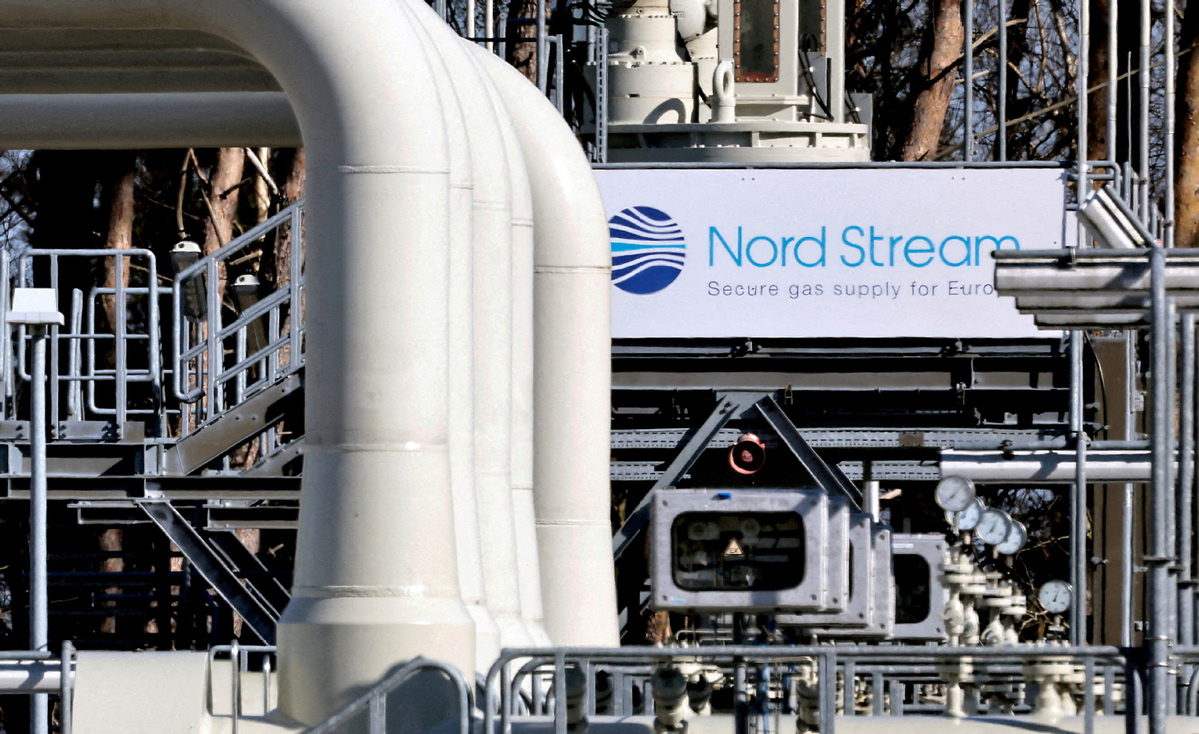Can Europe overcome the energy crisis?
By Ann Buel | chinadaily.com.cn | Updated: 2022-09-23 15:25

All Europe, not just the European Union, is suffering the consequences of skyrocketing energy prices, especially gas and electricity prices, and the disruptions in Russian gas supply to Europe. And with the eurozone heading toward an economic recession, people and enterprises in Europe are in for bigger shocks.
All EU leaders have acknowledged the extremely difficult situation Europe is in now. According to Oxford Economics, some of the economic problems, especially inflation, is the result of the lingering COVID-19 pandemic, and the resulting diversion of huge amounts of funds to deal with the economic consequences of the pandemic.
However, the biggest economic blow to the EU has come from the Russia-Ukraine conflict, because it has distracted the European bloc from implementing proper economic policies to absorb the inflation shock. In contrast, if China takes an approach to better balance economic exigencies and pandemic control, as a result, China's GDP is likely to grow by 5-6 percent in 2023.
"The next five to 10 winters will be difficult," Belgian Prime Minister Alexander De Croo warned recently as fuel prices and electricity bills reached record highs. What's worse is that the energy crisis has fueled the liquidity crisis leading to bankruptcies. As Finnish Economic Affairs Minister Mika Lintila said, the unfolding liquidity crisis has all "the ingredients for a kind of a Lehman Brothers of energy industry".
According to Euractiv, European energy companies have been strained by "margin calls" — or the need of capital to secure energy trade — of at least $1.5 trillion. In October 2021, OTIMA, a midsized utility based near Berlin, became the first German energy and gas supplier to file for bankruptcy following spikes in electricity prices.
In Austria, Wien Energie, a local energy utility which is also the country's largest energy company, has asked the government for a €6 billion ($5.89 billion) lifeline. This comes after German energy utility Uniper was bailed out in late July for a price tag of €15 billion.
Germany is especially affected, due to its dependence on Russian gas. In particular, the German chemical and metallurgy industries, fertilizer producers and other sectors may have to stop production for some months, pushing the largest European economy toward recession — and reducing Germany's GDP by as much as 7 percent, something which the German economy has not witnessed since the end of World War II.
This could affect the success of the European project, that is, the European Union as an economic bloc. As a result, immense political and economic efforts are needed to keep the EU united and ensure it continues to work for the common good. But according to some geopolitical analysts, some EU countries have started to play individual geopolitical games to get the benefits for themselves at the cost of other EU states. Poland, for example, has demanded that Germany pay billions of euros as additional compensation for World War II.
As such, the EU power balance could shift to France, because with its nuclear energy industry in place, it is in a position to ensure electricity supply to Germany. But to get the uranium needed to run its nuclear power plants, France has to depend on Russia and Kazakhstan, even China.
Due to soaring inflation, more than 70 percent of the European population is feeling the impact of economic downturn. Some people cannot afford to pay for even food. People could therefore take to the streets demanding the resignation of governments, which could change the political landscape of Europe ahead of 2024 European Parliament elections. Among the biggest fears is the potential increase in extremism, terrorism and nationalism due to the worsening economic situation.
What is to be done?
The only way out of this crisis, as in a number of other critical cases, is for the EU to further integrate the needs of the European countries and pursue European interests. Fortunately, fewer and fewer European people, governments and institutions see the US policy as being superior to the EU policy.
So the EU, as before, must set its own political priorities, dedicate more funds and time to build the European "political union" and military, as proposed by French President Emmanuel Macron, devise its own human rights rules, and set its own benchmarks for democracy, while stopping the United States from dictating terms to European countries, especially when it comes to sanctions.
Moreover, the Joe Biden administration's "love affair" with Europe has taken a turn for the worse for the EU.
Instead of succumbing to the US' diktats, therefore, the EU must cooperate more with China, India and other Asian countries to facilitate its sustained development. And it must realize that all economic and political systems within the framework of the UN Charter have the right to thrive.
So to prevent the further destruction of the European project and European values, the EU must stop the US from manipulating the bloc's foreign policy and pursue balanced and respectful cooperation with other economies. It must remember its historical mission of establishing permanent peace in Europe — a mission for which the Schuman Declaration was issued and the Nobel Prize for Peace was given to the EU — and prevent any conflicts of ideology.
The author is a former officer of the European Commission. The views don't necessarily reflect those of China Daily.
If you have a specific expertise, or would like to share your thought about our stories, then send us your writings at opinion@chinadaily.com.cn, and comment@chinadaily.com.cn.
























